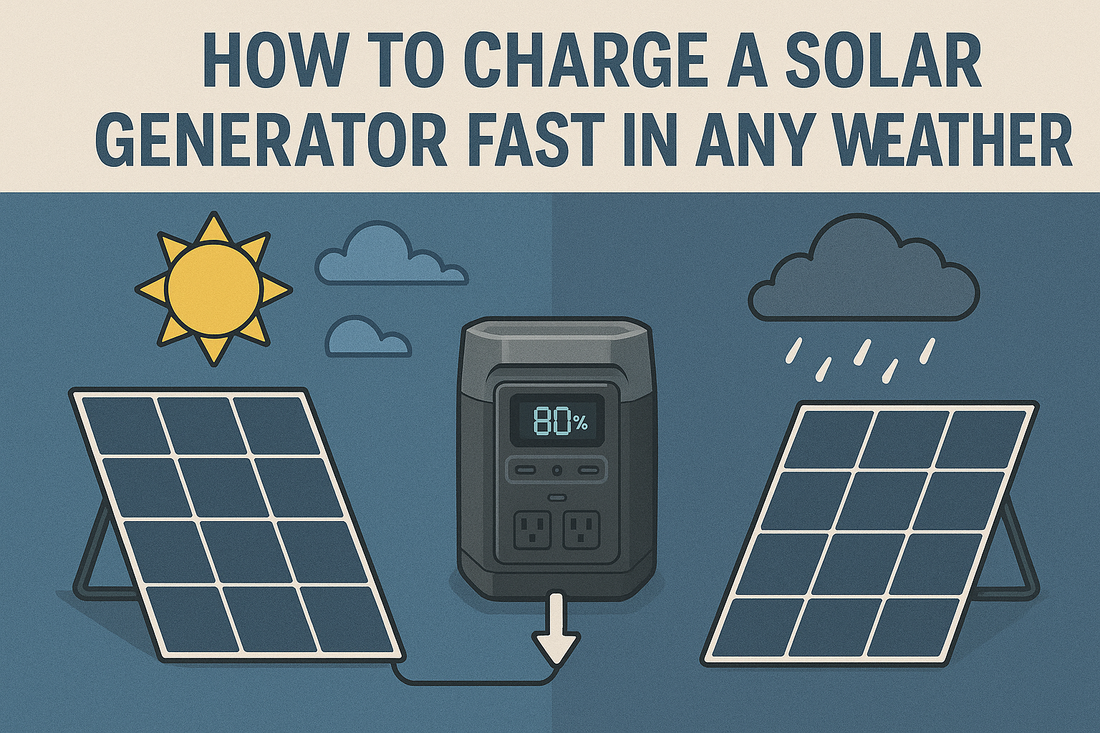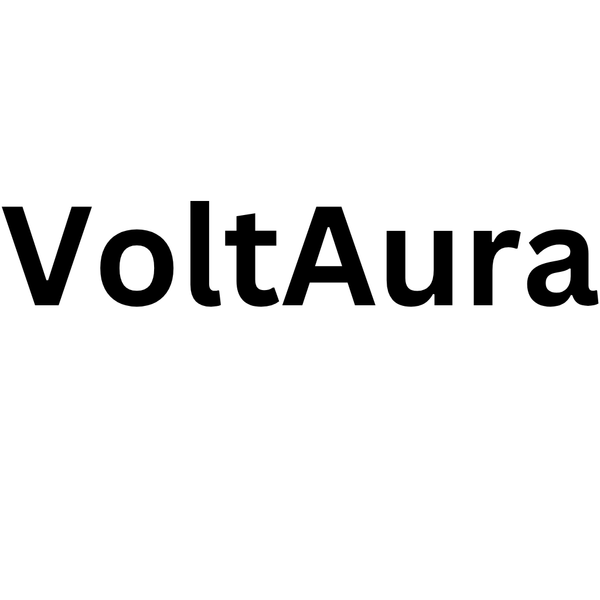
How to Charge a Solar Generator Fast in Any Weather
Share
How to Charge a Solar Generator Fast in Any Weather
A solar generator is a portable power station that can be charged with solar panels. While they’re perfect for off-grid power, charging speed can be a concern — especially when sunlight is limited.
Here’s a complete guide on how to charge your solar generator as quickly as possible, in any weather conditions.
1. Use the Maximum Solar Input Your Generator Allows
Every solar generator has a maximum solar input rating (measured in watts).
-
Example: EcoFlow Delta Pro accepts up to 1,600W of solar input.
-
If you only connect 400W worth of panels to a system that can handle 1,600W, you’re charging slower than possible.
Tip: Check your generator’s manual and match your panel setup to its maximum input for fastest charging.
2. Position Panels for Maximum Sun Exposure
-
Clear Shadows: Even a small shadow can reduce panel output by 50% or more.
-
Angle Adjustment: Tilt panels to match the sun’s position — higher in summer, lower in winter.
-
Track the Sun: Adjust every 1–2 hours for maximum efficiency.
3. Combine Solar with AC or DC Charging
Many modern units support dual charging — using solar plus AC wall charging at the same time.
-
Example: Delta Max can charge from solar and an AC outlet, cutting total charge time in half.
-
In an RV, you can combine solar with DC charging from the vehicle’s alternator.
4. Use High-Efficiency Panels
Not all panels are equal. Look for:
-
Monocrystalline panels with 20%+ efficiency
-
Low-temperature coefficient (better output in heat)
-
MC4 connectors for minimal loss
5. Charging in Cloudy or Bad Weather
Even in overcast conditions, solar panels can still generate 10–25% of their rated power.
-
Series Connection: In low light, wiring panels in series can help maintain voltage.
-
Keep Panels Clean: Dust, snow, or water spots can reduce efficiency in cloudy weather.
-
Portable Backup: Keep a small gas or propane generator for emergencies.
6. Cold and Hot Weather Considerations
-
Cold Weather: Panels often perform better in cold temps if there’s sunlight.
-
Hot Weather: Overheating reduces efficiency — raise panels off the ground for airflow.
-
Battery Care: Avoid charging lithium batteries below 32°F (0°C) unless your generator has built-in heating.
Example: Fastest Charging Scenario
EcoFlow Delta Pro (3600Wh capacity):
-
Max solar input: 1600W
-
6 × 400W panels in direct sun = ~1600W charging rate
-
Full charge from solar only: ~2.5–3 hours in ideal summer sun
-
With dual charging (AC + solar): ~1.8 hours
Key Takeaways
-
Match your solar input to your generator’s maximum capacity
-
Adjust panel angle regularly for peak efficiency
-
Use dual charging whenever possible
-
Choose high-efficiency monocrystalline panels
-
Weather matters — plan for cloudy days with backup charging options
Bottom Line:
With the right panel setup, proper positioning, and smart use of dual charging, you can fully charge a solar generator in hours instead of days — even when conditions aren’t perfect.
